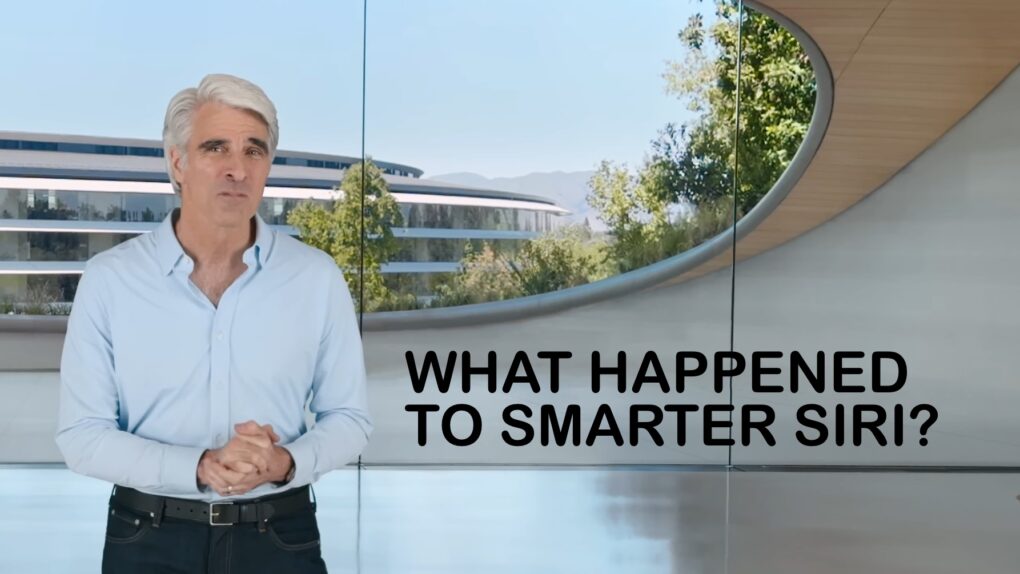Craig Federighi, Apple’s head of software development, finally gave more details on why the AI-enhanced new Siri version got delayed for so very long. He explains why Apple thought it could deliver the new feature this year, but eventually had to push back the launch until possibly 2026.
The intent seems to be to show that Apple was being overly optimistic, not deceptive, when it said at WWDC24 the new Siri version would be out within a year.
Why we’re still waiting for smarter Siri with AI
Apple said almost nothing about the project to inject artificial intelligence into the Siri voice assistant during the WWDC keynote on Monday, but it was a highlight of last year’s developers conference. The new, much smarter version was going to be the centerpiece of Apple Intelligence. But in March the company changed the rollout to “in the coming year.”
In an interview this week, Federighi said the delay came down to Apple hoping for too much out of the first version of its artificial intelligence architecture.
“When we were developing this feature that we had, really, two phases, two versions of the ultimate architecture that we were going to create,” Federighi told Tom’s Guide. “Version one we had working here at the time that we were getting close to the conference [WWDC24], and had, at the time, high confidence that we could deliver it.”
That was true for months, but as more time passed, the company realized that version one of the architecture would never do what was required.
“Fundamentally, we found that the limitations of the V1 architecture weren’t getting us to the quality level that we knew our customers needed and expected,” said Federighi. “If we tried to push that out in the state it was going to be in, it would not meet our customer expectations or Apple standards, and that we had to move to the V2 architecture.”
Apple made that realization in March, and it then announced that the AI-enhanced Siri was delayed for many months.
Not vaporware
While Federighi doesn’t get into more detail on the causes for the long delay, his comments should help quiet accusations that the AI-driven system shown off in a video during WWDC24 was “vaporware.”
The Wall Street Journal’s Joanna Stern asked that specific question during an interview on Monday, “There was a working version of this? This was not just vaporware?”
Federighi responded by saying, “Oh, no, no, no, no, of course, no, we were filming real working software with a real large language model with real semantic search — that’s what you saw.”
The wait goes on
Various interviewers all ask Federighi variations of the same question: When will the new, smarter Siri be released?
During the WWDC25 keynote Monday, he said, “We’re continuing our work to deliver the features that make Siri even more personal. This work needed more time to reach our high-quality bar, and we look forward to sharing more about it in the coming year.”
The Apple exec told iJustine in an interview, “We really look forward to releasing everything we talked about in the past and more. We don’t really want to commit to that until we have it in hand.”
What to expect from an AI-enhanced Siri
Apple promised “the start of a new era for Siri” at WWDC24 last June, thanks to a hefty infusion of artificial intelligence. The company laid out a glowing future for the voice assistant, with a smarter Siri capable of doing almost anything an iPhone user could do.
Apple’s AI efforts are focused on typical users. An average iPhone user doesn’t need AI to generate a heist movie starring puppets, as some rivals can do, and so that’s not going to be a part of Siri. Instead, the voice-driven system will be better at understanding what users want and performing complex everyday tasks. Apple calls it, “AI for the rest of us.”


